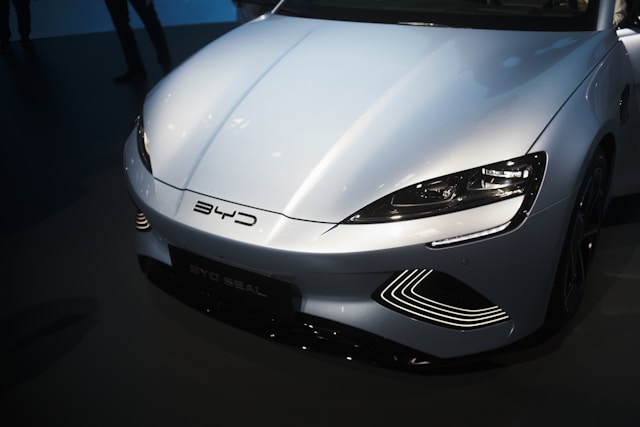Sri Lanka Customs has detained nearly 1,000 BYD electric vehicles (EVs) at the Colombo Port over alleged discrepancies in their declared motor capacities—raising red flags under the island’s newly revised vehicle import tax regime.
The controversial move comes just months after the government restructured its import tax system, where electric vehicle excise duties are now strictly based on motor output (in kilowatts). Customs officials say the detentions are in line with these updated rules to prevent significant tax revenue losses.
Nearly 1,000 Chinese-manufactured BYD electric vehicles, imported into Sri Lanka in six consignments, have been detained by Sri Lanka Customs over disputes regarding their declared motor power output, which is now a critical determinant of applicable excise duty under the country’s latest vehicle tax regulations.
The vehicles, mostly of the BYD Atto 3 model, were declared as having 100 kilowatt (kW) motors. However, Customs suspects that these cars may actually have 150kW motors—an allegation with significant financial implications, as the tax rate increases steeply with higher motor capacity under the new framework.
According to official sources, the excise duty on a 100kW EV is approximately Rs. 2.4 million, whereas the duty on a 150kW model can be as high as Rs. 5.4 million. The dispute could result in an estimated additional Rs. 4 million in tax per vehicle if the declared capacity is found to be inaccurate.
The detentions, though controversial, are being justified by Customs officials under the latest tax regulations implemented by the government on 1 February 2025. The revised vehicle import tax structure reintroduced excise duties on EVs based on motor capacity (kW), a system that was once challenged but now fully reinstated and expanded.
Current EV Tax Structure in Sri Lanka (Effective Feb 2025)
Motor Power (kW) Age of Vehicle Excise Duty Rate
Up to 100 kW < 3.5 years 200–300% of CIF value
100–200 kW < 3.5 years 300% of CIF value
> 200 kW < 3.5 years Higher tiers apply
All categories > 3.5 years 200% duty across board
Additional levies include:
Customs Import Duty (CID): 30% of CIF value (20% base + 50% surcharge)
Luxury Tax: 60% on EVs with CIF values exceeding Rs. 6 million
VAT: 18% on total value (CIF + taxes)
Social Security Contribution Levy (SSCL): 2.5% of dutiable value
This structure reinforces motor capacity (in kW) as a core determinant of vehicle taxation. Customs officials argue that strict enforcement is essential to prevent under-declaration and protect state revenue, especially given the government’s tight fiscal position.
The agents for BYD in Sri Lanka, JKCG Auto, have maintained that the imported vehicles are 100kW variants manufactured to suit specific market needs, such as those in Singapore and Nepal. “These configurations are provided directly by the manufacturer and are not unique to Sri Lanka,” a company spokesperson said.
Globally, variations in EV motor ratings are common. For instance, Singapore permits lower kW models to qualify for its Category A entitlement scheme. Even Tesla offers a down-rated 110kW Model Y in Singapore for the same reason.
However, concerns persist that manufacturers may be downgrading software ratings without physically altering the motor, making enforcement difficult. A 100kW-rated car could share the same physical motor as the 150kW version but offer lower performance. According to reviews, the BYD Seal’s 100kW version takes 10 seconds to go from 0–100 km/h, while the 150kW variant takes just 5.9 seconds.
Earlier this year, during a session of the Parliamentary Committee on Public Finance, several members’ highlighted cases where identical EV models were being taxed differently based on the declared motor rating. At the time, Customs Spokesman Seevali Arukgoda acknowledged the complaints and confirmed that an investigation had commenced.
While over 1,000 BYD vehicles have already been cleared and sold to end users, the current detentions mark a significant shift in enforcement under the revised tax code. Industry stakeholders now await clarity on how Customs will assess manufacturer documentation and real-world vehicle specs in the weeks ahead.
